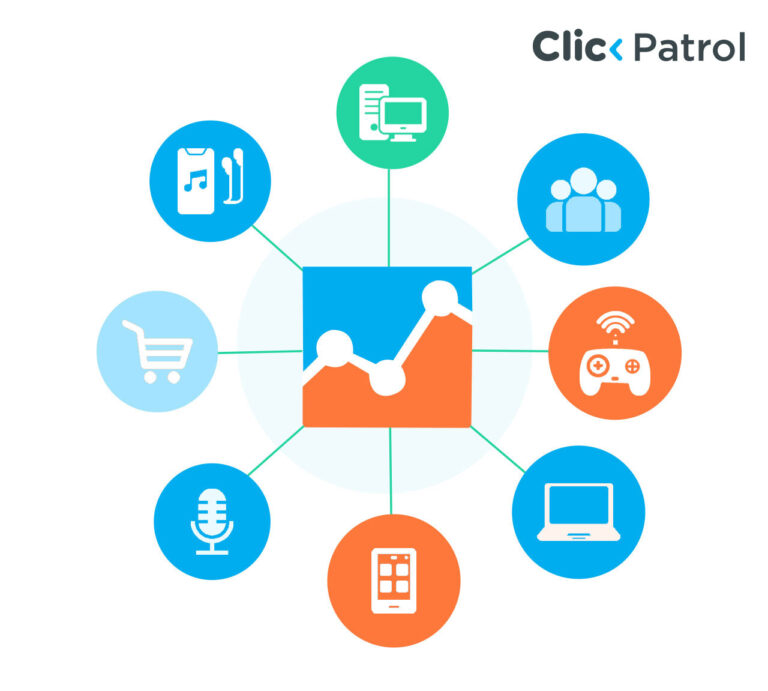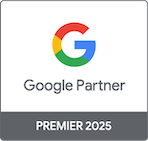
10 Common Reasons Why PPC Campaigns Fail
Abisola Tanzako | Jan 24, 2024

Table of Contents
- Reasons why PPC campaigns fail
- 1. Absence of conversion tracking
- 2. Not utilizing negative keywords
- 3. Cash/budget crunch
- 4. Failing to make a landing page
- 5. Using too many keywords
- 6. Overemphasizing cost per lead
- 7. Improper campaign management
- 8. Lacking clear goals and objectives
- 9. Giving up too quickly
- 10. Not using PPC protection software
- Conclusion
Do you know why your PPC campaigns fail?
One excellent strategy for growing your business and generating more leads and sales is pay-per-click marketing. PPC advertisements have helped many organizations reach a larger audience and successfully convert them.
Nevertheless, many companies make several typical errors that lead to PPC campaign failure and hinder them from obtaining a respectable return on investment. If your PPC campaigns are failing and your budget is running low, you may need help to commit more money.
You can also swiftly reach your potential audience by employing PPC advertising, but it’s crucial to understand that managing a successful PPC campaign is tricky. Let’s look at some of the typical explanations for PPC campaign failures.
Reasons why PPC campaigns fail
1. Absence of conversion tracking
What is conversion tracking, and how does PPC marketing benefit from it?
Conversion monitoring allows you to ascertain the steps a customer takes to get to the page you want them to visit; this could be a download page, confirmation page, or contact form.
You must set up conversion tracking in PPC management to monitor the terms that users are searching for. You may maximize your return on investment (ROI) from PPC advertisements by using this information to optimize them.
By tracking their activity, you can determine how close a consumer will go to the call to action before downloading content or signing up for your newsletter.
2. Not utilizing negative keywords
Negative keywords stop your ads from showing up for any unrelated search searches. Your advertisement won’t appear for any user-inputted search query containing one or more terms considered unfavorable. Negative keywords are helpful since they ensure that only members of your target audience interested in your products or services will see your ads, reducing their visibility.
You can save significant money by using negative keywords instead of wasting it on pointless clicks. For instance, if you own an online apparel business that solely sells items for men, you may list “women” and “kids” as negative keywords. This will prevent consumers from seeing your ads when they search for terms like “kids wear” or “women’s clothing.”
Negative keywords lead to a healthier CTR that is more conversion-focused by making your ads more targeted. Negative keywords must be included in all PPC campaigns.
3. Cash/budget crunch
The budget is one aspect of a PPC campaign that determines its success and needs to be regularly considered. When it comes to cash constraints, advertisers start to act more cautiously. New marketers typically begin their PPC campaigns with a smaller budget. Because of this, they quit running advertisements whenever their money runs out and continue to believe that PPC isn’t for them.
If your budget is small, you’ll likely place an excessively low bid and not participate in the competition. Alternatively, you will need more money before getting many clicks if you have a small budget.
4. Failing to make a landing page
This is a frequent cause of PPC campaign failure because marketers direct users to the home page rather than the landing page because they need clarification on the precise distinction between the two. A homepage is an introduction to your website and a table of contents. On the other hand, a landing page is a dedicated page on your website designed with just one conversion goal in mind.
It might only be effective to send users to the homepage if the intended call to action exists. Otherwise, directing them to the site, where the bounce rate inherently rises, might be a mistake. Create distinct landing pages for each goal that provides precise details on the specific good or service rather than directing all your visitors to the homepage.
More conversions and an improvement in the CTR are guaranteed when the landing page is aligned with the PPC ads. You can utilize high-converting keywords and high-quality photos and graphics on your landing page to increase your page’s conversion rate.
5. Using too many keywords
The adage “Too much of anything is bad” is unquestionably accurate regarding PPC campaign keywords. The appropriate use of keywords significantly impacts any PPC campaign’s performance.
The fundamental units of your pay-per-click (PPC) campaigns are keywords that inform and direct visitors to your website. Only stuff your keyword list with a few terms to get a long list. Remember that quantity is never more important than quality. It is preferable to contact a small number of interested individuals rather than a large number of people with no interest in your product or service; therefore, concentrate on the keywords that best describe your target market.
Additionally, pick keywords that accurately represent your offering so that potential customers will clearly understand it and won’t be left wondering or perplexed.
You can limit the usage of broad-type and budget-draining keywords to address the issue of keyword overspending. Additionally, you can eliminate the keywords that generate less traffic and concentrate entirely on the ones that do.
6. Overemphasizing cost per lead
PPC marketing is a fantastic way to generate leads. Many marketers believe that the cost per lead gauges the effectiveness of PPC ads. This means the cost per lead tells us whether or not the PPC advertisements yield meaningful results.
PPC marketing was once a well-known tool for click optimization. However, PPC marketing has also shown value in recent years for optimizing conversions. Clicks are crucial, but what if people stay on the clicks and never explore further? This won’t get the desired results, none or very few conversions.
The net effect is that conversions should receive more attention than clicks. It is important to remember that the cost per lead is merely a metric and not a gauge of how well PPC campaigns are working. Therefore, look at your conversion rate and concentrate on that rather than how much you pay for each generated lead.
7. Improper campaign management
It is repeatedly emphasized that “PPC is not a set-and-forget thing.” Creating a strong PPC campaign is only the first step. Most of your time must be dedicated to optimizing bids, ad text, keywords, and other PPC features for a PPC campaign to be effective.
Companies operate under the false belief that they can manage their PPC campaigns and their other company endeavors.
PPC campaigns should be managed independently and with complete focus and attention.
For most marketers, the best way to get the most out of their PPC campaigns is to hire an experienced PPC manager in-house or through an agency.
8. Lacking clear goals and objectives
Achieving success with a well-defined goal or objective is attainable. A lack of objectives is like a voyage without a well-defined final destination. PPC marketing is subject to the same guidelines. You can only determine when your PPC campaigns are successful if you have specific, quantifiable targets.
Therefore, specify the objective and success point precisely before launching any PPC campaign so that the outcomes may be evaluated appropriately. Establishing a goal is the cornerstone of any marketing strategy, yet many advertisers must remember to do so when launching a PPC campaign. It’s critical to understand your objective at the outset of any PPC campaign since the campaign as a whole is based on it.
9. Giving up too quickly
If, however, your PPC campaign is new and, after a few weeks, you are considering ending it, it’s likely because you needed to generate more leads or sales. Be assured that it is not a good idea at all. PPC campaigns often take some time to optimize, so ending the campaign before it has had a chance to do so would be unfair to you and your campaign.
Determining which keywords are underperforming and which are performing well takes some time. Which ad converts the highest, what is the optimal bid price, and which negative keywords should I use?
Although optimization takes some time, you may encounter specific outcomes you had not anticipated. Therefore, the PPC campaigns’ optimization duration shouldn’t be the basis for the final selection. Be cautious not to give up too soon.
10. Not using PPC protection software
Choosing to not protect your campaigns opens you up to invalid and non-human clicks that will not convert. To maximize your ad budget and increase conversions, a PPC protection software such as ClickPatrol is a must-have.
Conclusion
These typical causes lead to why your PPC campaigns fail, which cost many businesses thousands of dollars each month in lost revenue and cause them to lose faith in this kind of advertising. As a result, overcoming such causes of failure becomes crucial by learning about them and gaining knowledge to enhance performance and make PPC campaigns successful.





